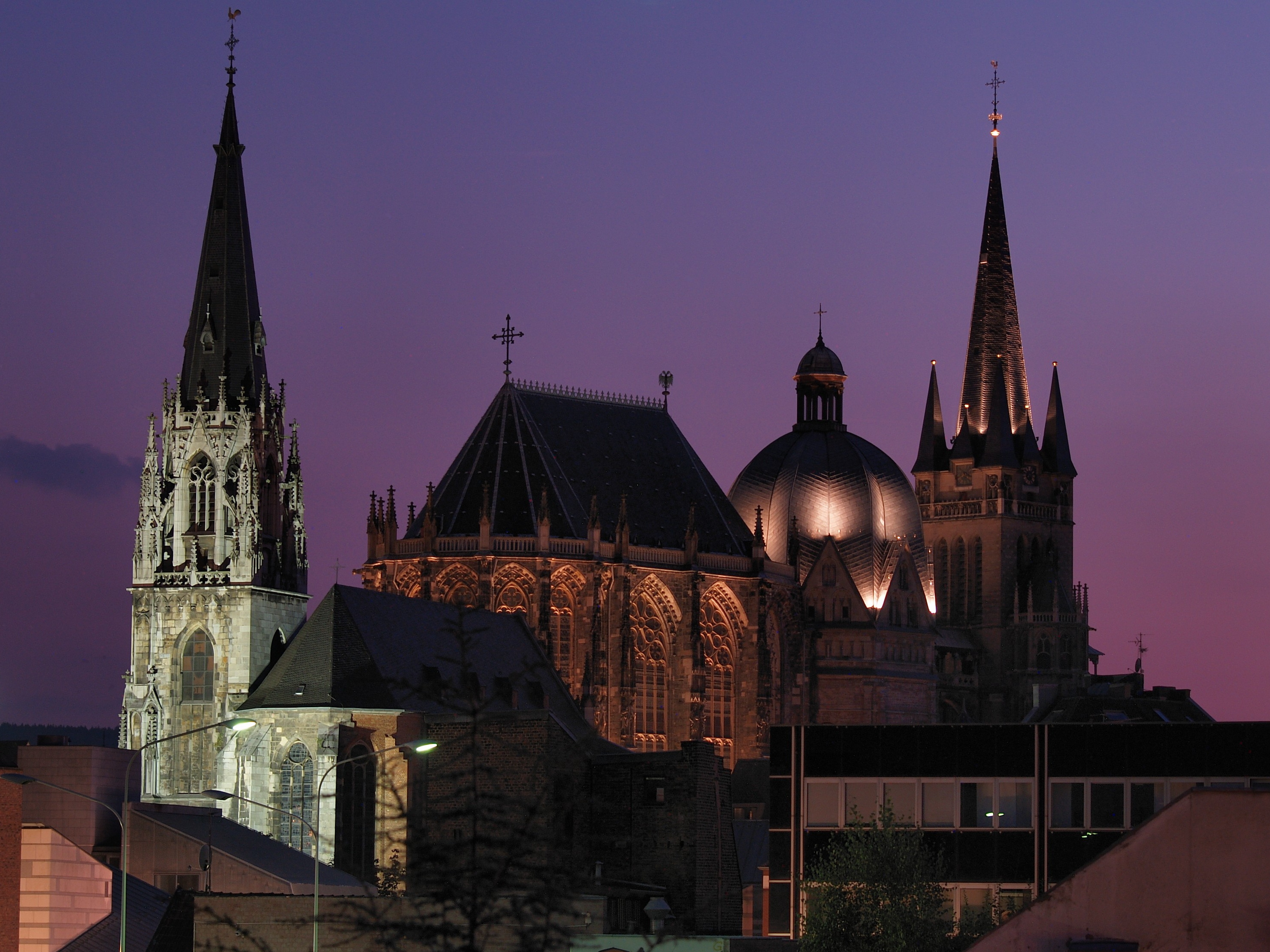The Carolingians
Late Antiquity
Arnoldius, CC BY-SA 3.0 , via Wikimedia Commons
The expansion of the Umayyad Caliphate had continued unchecked for fifty years, until from its home in Arabia it stretched across all the former dominions of the Persian Empire, Mesopotamia, Egypt, the whole of North Africa, Spain, and Anatolia. By 674, the Caliphate laid siege to the Roman capital Constantinople, but there their advance was checked. The siege lasted five years, but the city held fast due to its formidable defenses and the Romans' use of "Greek fire," which appears to have been some kind of napalm.
In the West, the Caliphate was expanded until encountering the Franks, one of the Germanic tribes that had crossed the Roman Empire's Rhine frontier. The Franks had been united in 509 AD under King Clovis and his Merovingian Dyansty. After the fall of Rome, the province of Gaul became known as Francia.
By the eighth century, however, the Merovingian kings were more interested in reigning than ruling, and political power lay in the hands of a prime minister known as the Mayor of the Palace. In 715, a man named Charles took this position, essentially becoming the ruler of France. When the Caliphate invaded France from Spain in 732, Charles drove them back at the Battle of Tours, earning the nickname Charles Martel ("Charles the Hammer.") The Caliphate retreated back to Spain and made no further serious attempts to invade Europe from the West.
Power passed to Charles' son, Pepin. Pepin wrote a letter to the Pope, asking, "In regard to the kings of the Franks who no longer possess the royal power: is this state of things proper?" Pope Zachary carefully replied that it was important to call things what they are. Pepin overthrew the Merovingians and became king himself, founding the Carolingian Dynasty ("Carolus" being the Latin version of Charles.)
Under Pepin, Francia became the most powerful state in western Europe. During his reign, a Germanic tribe called the Lombards invaded Italy. Realizing the Emperor in Constantinople was unable to defend Rome, the pope turned to Pepin for help. The Franks swept into Italy and defeated the Lombards, giving much of northern Italy to the pope and creating the Papal States.
Pepin's son, also named Charles, succeeded his father and continued the Frankish alliance with the papacy.
